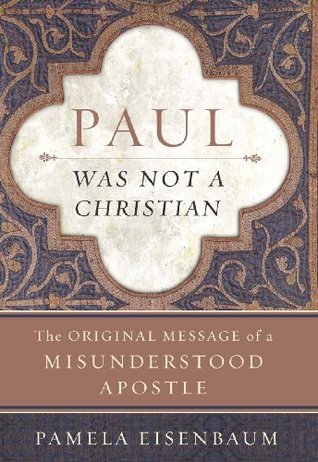More on this book
Kindle Notes & Highlights
Read between
July 28 - July 30, 2023
To put it succinctly, Torah is more than a written text; it is a way of relating to God.
The laws that God bestows on Israel are not understood as a liability, but as a gift, the result of Israel’s favored status.
In diametric opposition to the stereotype of Jews as legalistic and obsessed with technical matters of law that made no real ethical difference, Hellenistic Jews characterized their devotion to Torah as a form of morality to which they imagined other peoples aspired or should aspire.
Gospel writers tend to blame the Pharisees’ compromising interpretation of Torah on their following the “traditions of their ancestors,” instead of Torah. For the gospels of Matthew and Mark especially, it is precisely because the Pharisees follow the traditions of their ancestors that they do not follow the (written) Torah scrupulously—that is the essence of the gospel critique.
Josephus says that the main distinction between the Pharisees and the Sadducees derives from the Pharisees’ appeal to these “traditions” as authoritative:
It is important to note that the rhetorical force of Paul’s argument in Philippians 3 depends on recognizing that the identity markers Paul uses are indicators of status, not of shame.
when he says he counts all his Jewish privileges and credentials as a loss, then they must be things people ordinarily count as valuable. If Paul considered his past life one of sin and degradation, then he would not call giving up that life a loss; on the contrary, giving up that kind of a life would count as a gain.
To put the matter in extremely simple terms, Paul is not claiming he has given up bad and shameful things for Jesus. On the contrary, he has given up good and honorable things. What Paul is saying in Philippians 3 is that he no longer values such claims to status, because they pale in comparison to being a follower of Jesus.
The passage from Deuteronomy refers to a person who has been executed on account of a capital offense; the reason for the curse is the offense, not the manner of execution.
The utopian monotheist vision requires gathering different peoples together, not their separation.
In order to recover Paul’s Judaism, it takes a bit of effort, though not as much as you might think. When one knows what to look for, Paul’s Jewish perspective is everywhere throughout his letters.
We forget that the early church was dominated by Jewish believers before Gentiles became the dominant adherents to The Way.
Paul’s belief in Jesus did not lead him to adopt a radically new system of values. It led him to tweak his existing one, but the essential principles of a recognizably Jewish value system are still intact.
In concise terms, Jews were worshippers of the one, true, living God, and Gentiles were idolaters.
In biblical literature, moral impurity pertains specifically to three kinds of egregiously sinful behavior: idolatry, sexual immorality, and bloodshed.
Sexual sins are not simply legal infractions remedied by restitution or rituals of atonement. These are sins that cause serious defilement, and this defilement extends beyond the sinner: it potentially pollutes the space and the community in which God’s presence dwells.
the primary intent of Paul’s judgment is not the condemnation of the offending party but the protection of the community.
Because the assembly of believers was the equivalent of the sanctuary, Paul’s vigorous concern for monitoring sexual behavior may be seen as a reflection of the Hellenistic Jewish preoccupation with moral purity and impurity.
The label “Old Testament” would not have made sense to anyone in the first century as a description of Jewish sacred writings. The bottom line is that Scripture for Paul always refers to a collection of unambiguously Jewish sacred texts, that he uses the terminology of law (nomos, which may also be translated “Torah”) as a synonym for the Scriptures, and these sacred writings are no less authoritative for the apostle after his encounter with Jesus than they were before it.
Paul never condemns Torah. Neither does he devalue, diminish, or degrade it; it remains the Word of God and the means through which human interpreters may discern the will of God.


